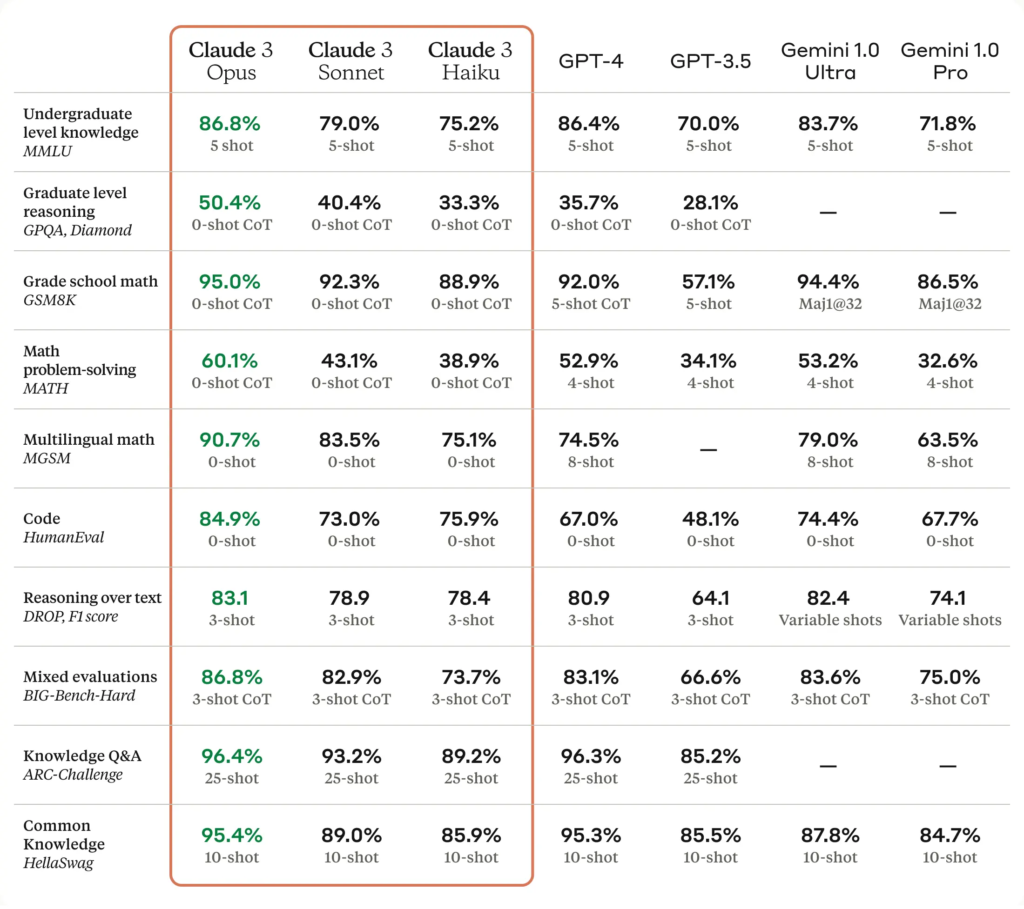The Claude 3 model family represents the latest advancement in AI technology, setting a new industry standard across a diverse array of cognitive tasks. Comprising three distinct models — Claude 3 Opus, Claude 3 Sonnet, and Claude 3 Haiku — the family is designed to cater to varying needs, offering a spectrum of capabilities. The most advanced model, Claude 3 Opus, excels in tasks that require deep understanding and complex reasoning, like undergraduate and graduate-level knowledge tests, mathematics, and more. Claude 3 models are not only more adept at understanding and generating nuanced content but also show remarkable performance in coding and conversing in multiple languages.
Speed and efficiency are core attributes of the Claude 3 models. For instance, the Haiku model can rapidly process extensive and data-dense documents in a matter of seconds, while Sonnet, being twice as fast as its predecessors, is ideal for tasks that require quick responses such as knowledge retrieval and sales automation. The Opus model, though similar in speed to the previous generation, offers significantly enhanced intelligence, capable of handling sophisticated tasks at a higher level of performance.
Notably, the Claude 3 models are engineered with strong vision capabilities, capable of interpreting various visual formats, which is particularly valuable for enterprise applications with complex knowledge bases. The models have improved on the limitations of earlier versions, showing fewer unnecessary refusals and a more nuanced understanding of prompts. With improvements in accuracy, the Claude 3 family, especially the Opus model, has demonstrated a remarkable twofold increase in correct responses on challenging questions compared to its predecessor. Furthermore, the Claude 3 family is designed with responsible AI practices in mind, actively addressing biases and safety concerns to ensure trustworthiness and transparency in applications.






